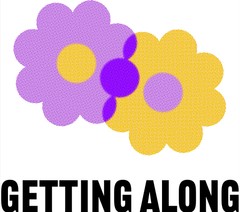Getting Along is a column about taking care of yourself, setting boundaries, and having difficult conversations, for people who struggle with all three.
Advertisement
“Other people’s privates” has been on my mind a lot in the past few days, ever since I saw the music video for “WAP” and then watched the Internet melt down over “the children” who might be scarred for life upon hearing it. In case you missed it, “WAP” stands for wet-ass pussy; the song is Cardi B and Megan Thee Stallion’s ode to them. In the radio edit of the song, the chorus has been changed to “wet and gushy.” As amusing as I find the pearl-clutching, I do feel grateful that I am not a parent, and therefore do not have to explain “punani Dasani” to a 5-year-old, or a 10-year-old, or any youth who is in my care, and who happens to hear the song. So while we wait to see what the enterprising minds at KidzBop will make of “WAP,” I spoke to Erin Harper, a nationally certified school psychologist, assistant professor of psychology and special education at Texas A&M-Commerce, and author of Dear Mom, You Don’t Get to Have Nice Things. Here’s what she told me about the best way to respond if a kid hears some “explicit” song lyrics and asks you what they mean. This interview has been lightly edited for clarity.VICE: Let’s start here: Is hearing sexualized song lyrics "bad" for children? Should parents be trying to prevent their kids from hearing the unedited version of "WAP"? Erin Harper: I don’t think the answer is as black-and-white as being “bad” or “good.” I do think that if children are exposed to sexualized song lyrics parents can and should use the exposure as an opportunity for teaching and learning about sex, sexuality, and related topics.
Advertisement
I don’t believe parents should try to prevent their older children or adolescents from hearing the unedited version of the song or other songs with sexual content. Instead, parents should focus on equipping their children with comprehensive sex education and tools to critically examine media. So let’s say an adult overhears a kid singing “wet-ass pussy” to themselves—what should the adult do? One of the first things to do is to ask the child or adolescent what they already know and truly listen to what they have to say. Assure/reassure them that they can come to you about these issues without judgment. After letting them know that they can come to you about sex/sexuality-related issues, SHOW them. That is, try to keep a “neutral” tone. Some parents may find the questions funny, while others may be upset or embarrassed. Kids shouldn’t feel like you’re laughing at them or angry with them for asking these questions. If young people feel ashamed or scared, they may be less inclined to come to you in the future. Let them know you’re glad they feel comfortable asking such questions. If a young person flat-out asks what a pussy is—or another word in the song, like “punani” or “dick”—what should you say?I recommend letting the child or adolescent know that it is common for people to use informal terms to describe body parts. I would do this without placing judgment on what some people choose to call their body parts. And I would be sure to tell the child the actual name of the body part (e.g., vagina or penis) because using nicknames for body parts may convey the message that something is wrong with/taboo about the actual name of the body part.
Advertisement
Is it OK to lie (or be, let's say, less than fully honest) about what the lyrics mean? Does one need to explain sexual lubrication to a kindergartener? I wouldn’t “lie,” but I would base my explanation on what is developmentally-appropriate for the individual child. Younger children typically aren’t ready to discuss details about sexual content in songs. There is no need to explain to your 5-year-old son or daughter the cultural and physiological complexities of a “WAP.” Older children and adolescents may be more equipped to engage in more in-depth conversations. Ashley Sivells, a therapist at Long Island Institute of Sex Therapy who I also talked to, suggested saying something like “it's a song about women feeling strong and happy” if you’re dealing with a young child. Thoughts? Oh, I actually love that response! I might add that everyone expresses their strength and happiness in different ways. Most parents wouldn't want their child using "WAP" to express how “strong and happy” they are at daycare, so parents might want to add something like "It's a song about women feeling strong and happy. People express their feelings in different ways. They're adults and choose to express their strength and happiness in that song. As a young person, you can express your feelings in ways that are important to you. How are you feeling today?" And then you've turned it into a social-emotional learning opportunity.
Advertisement
The radio edit of “WAP” changes "wet-ass pussy" to "wet and gushy,” which is, I guess, technically less explicit (??? debatable!!!), but still seems like the kind of thing that might lead to some questions. How would you recommend explaining these lyrics to a child or tween? Wet-ass pussy…gushy…same thang (hahaha). I would take the same approach to explaining the radio version as I would the explicit version. Let’s say a person decides not to let a kid listen to this song or watch the video; what's the best way to explain why they aren’t allowed to? I don’t know if there is a “best” way to explain the decision. If parents feel like certain songs or videos are off-limits, then they can simply let the child know that the content is off-limits and hopefully explain their rationale (e.g., the content does not align with the parent’s belief system or they don’t feel the child is ready to process/make sense of the content, etc.). However, if parents are being realistic, they know that even if they decide to restrict access to songs/videos like “WAP,” that children will likely still gain access to the content if they are determined to get it. Non-judgmental, affirming discussions, comprehensive sex education, and helping children with tools for critical consumption of media is more effective in promoting positive outcomes than banning content altogether. Any parting thoughts on “WAP,” sexual song lyrics or music videos, and children that you want to share? Yes, so many, but I will save those for my next comedy show!Rachel Wilkerson Miller is the author of The Art of Showing Up: How to Be There for Yourself and Your People. Follow her on Twitter.

